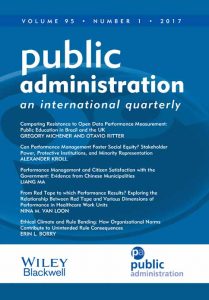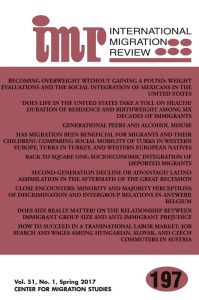Fatherhood and Black Fatherhood

Source: Wikimedia Commons
You may have noticed that a photo of a Black man doing his daughter’s hair was plastered all over Facebook and Twitter newsfeeds last month. That man, Doyin Richards, runs a blog, Daddy Doin’ Work, about his experiences raising his two daughters. But, unlike most of the posts from his blog, this photo went viral. When the photo appeared all over social media, it was paired with a quote from his blog. “I have a dream that people will view a picture like this and not think it’s such a big deal.” Despite his desire for the photo to be seen as not a big deal, Richards continues to receive a great deal of attention simply for being a Black father.
Notice that I did not say that the attention has all been good. As Richards notes on his blog, after the posting of the photo he has received a wide range of responses. Many of the responses have been positive and have praised him for being a good Black father, juxtaposed against the racist trope of the negligent Black father. But, many of the responses have also been very negative. Richards has received a large number of responses commenting negatively on his mixed-race children or commenting that they still think he is a “deadbeat” dad.
But why does the simple image of a Black father get so much attention? I argue that it is because we have been collectively socialized to not be able to comprehend Black fatherhood. The media raves about the crisis of Black fatherhood and non-profits have even emerged with the simple goal of solving the Black fatherhood problem. The crisis, as it is posed, is that so many young Black men are either abandoning their children or going to prison that there simply is no such thing as real Black fatherhood. Non-comedic representations of Black fatherhood are hard to come by on screen. If you turn on the tv you are far more likely to see a Black man trying to avoid fatherhood than to see a Black man acting as a father.
But is the crisis real? Yes and no. In the book The Myth of the Missing Black Father, a number of authors take on the modern American image of Black fatherhood and complicate with qualitative and quantitative data. The editors, Coles and Green, argue that Black fatherhood is misunderstood and misread rather than in crisis. Their case is also made by Connor and White in “Fatherhood in Contemporary Black America”. They argue that the role of Black men as fathers is more complex than most quantitative data analysis can typically capture and is better found through interviews and observation. All of these authors argue that while Black men don’t always fit the mold of the modern nuclear family they participate in family life in other ways.
Perhaps rather than singling out Black men when we talk about a fatherhood crisis, we should be talking about men more broadly. Men in general still do far less housework and childcare than women and men in general are far more likely to abuse their children and partners. That sounds like a more legitimate fatherhood crisis to me.
Further Reading
Buschmeyer, Anna. 2013. “The construction of ‘alternative masculinity’among men in the childcare profession.” International Review of Sociology 23:290-309.
Coles, R.L. and C.S.C. Green. 2013. The Myth of the Missing Black Father: The Persistence of Black Fatherhood in America: Columbia University Press.
Connor, Michael E and Joseph L White. 2007. “Fatherhood in contemporary Black America: An invisible presence.” The Black Scholar 37:2-8.
Craig, Lyn and Killian Mullan. 2011. “How Mothers and Fathers Share Childcare A Cross-National Time-Use Comparison.” American sociological review 76:834-861.
Haas, Linda and C Philip Hwang. 2008. “The impact of taking parental leave on fathers’ participation in childcare and relationships with children: Lessons from Sweden.” Community, Work and Family 11:85-104.



